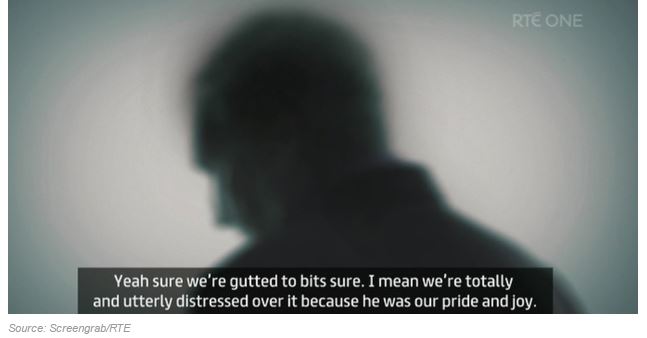When a case involving a child in care comes to light it can be extremely hard to get to the bottom of why the child is in care or whether decisions made by the State on behalf of the child are genuinely in his or her best interests.
It’s understandable that we don’t tend to have too much detail in these cases because the privacy of a child and his or her carers and family must be taken into consideration.
A case came to light last week involving a boy of primary school age whose natural parents couldn’t look after him. Therefore, for the last few years, the boy has been looked after by his paternal grandparents. They are in their mid-sixties. They have now been told they cannot be the child’s foster parents and he has been placed with someone else.
The decision to remove the boy from his grandparents was made by Tusla, the State’s children and family support agency.
We can only hope it has an absolutely overwhelming justification for this. Tusla itself said the “love and care of the grandparents” was not in question. It said the age of the grandparents was a factor, but not the only one because the boy has particular needs.
Tusla as a general rule does not allow people to foster a child when they are more than forty years older than the child.
Various TDs have weighed in and queried the 40 year age gap rule. It is fair enough that there should be an age gap rule but forty years seems far too strict.
Several TDs also wondered about the wisdom of removing the boy from members of his natural family. This is what really raised my antenna because in last year’s marriage referendum we were repeatedly assured that all a child needs is love and the natural ties are of little importance.
One of those weighing in on this case was former Labour party leader, Joan Burton.
She said: “Every single case must be examined on its own merits with the best interests of the child being paramount. We must not end up in a situation where stability or access to biological family is being restricted [my italics] because of inflexibility or a lack of common sense decision making.”
Note the reference to the biological family. Remember, one of the No side’s big arguments last year was that the redefinition of marriage and the family entailed in allowing same-sex marriage was so radical that the importance of the natural ties would be vastly downgraded.
After all, if we decide that two loving men are just as suitable to raise a child as a loving mother and father, both of whom are the natural parents of the child (only one of the men can be obviously), then what are we saying about the importance of the natural ties?
So to be consistent, those who so drastically downgraded the importance of the natural ties last year should not be so concerned in this case about the fact the boy was with his natural grandparents. They should only be concerned with the fact that his life is being disrupted by being removed from the people he is used to.
Or is it, perhaps, that they didn’t really understand what we voted for last year? In their understandable eagerness to do the right thing for a previously oppressed group, did they not spot what they were doing to the rights of children?
What else explains the fact that people like Joan Burton should draw attention to the importance of the natural ties in this case, and downplay their importance so badly last year?

















